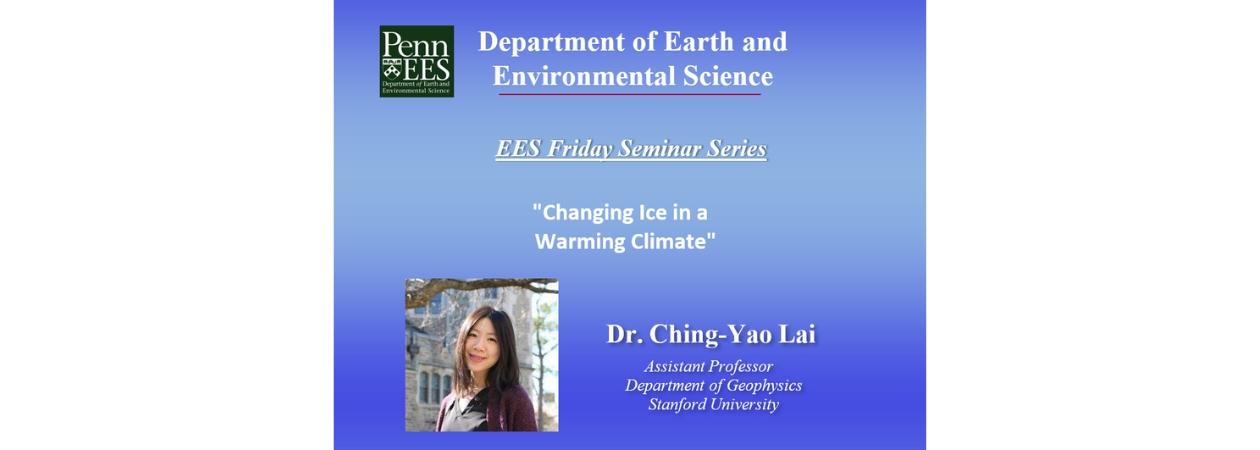
Part of the EES Seminar Series.
One of the biggest uncertainties in sea-level rise projections results from our incomplete understanding of how ice flows and cracks. In this talk Dr. Ching-Yao Lai of Stanford University will discuss two poorly understood aspects of ice dynamics. The first concerns how melting of ice surfaces triggers ice-shelf collapse through “hydrofracture”, which caused the catastrophic disintegration of the Larsen B Ice Shelf. Dr. Lai will introduce a new approach that combines physics-based models and deep learning techniques to provide physical insights into the stability of ice fractures and to predict the vulnerability of Antarctic ice shelves to atmosphere warming. In the second part of the talk, Dr. Lai will discuss data-driven exploration of the rheology of Antarctic Ice Shelves using physics-informed deep learning and remote-sensing observations. The flow law of ice, i.e. ice rheology, directly governs the dynamics of ice shelves but is challenging to measure in the field. Here with a data-driven approach the team identifies flow laws that are different from previously assumed in ice-sheet models. Their results suggest the need for reassessing the impact of ice flow law on the projections of future sea-level rise.
Dr. Ching-Yao Lai
Assistant Professor
Department of Geophysics
Stanford University
Ching-Yao Lai (Yao) is an Assistant Professor in the Department of Geophysics at Stanford. Before joining Stanford, she was an Assistant Professor at Princeton University in the Department of Geosciences and Program in Atmospheric and Oceanic Sciences. She received an undergraduate degree (2013) in Physics from National Taiwan University and a PhD (2018) in Mechanical and Aerospace Engineering from Princeton University. She completed her postdoctoral research in geophysics at Lamont Earth Observatory at Columbia University where she received the Lamont Postdoctoral Fellowship. Her current research focuses on integrating mathematical models and machine-learned models to tackle problems in the cryosphere. She was the recipient of the 2023 Google Research Scholar Award. She is also an active member of the APS Group on the Physics of Climate and holds the position of chair for its monthly virtual seminar.
